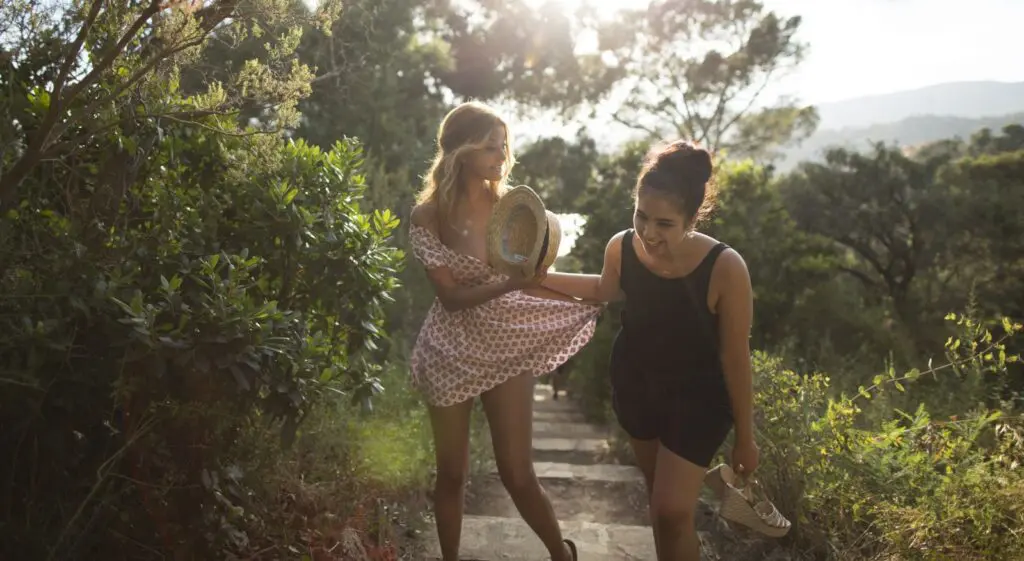Summary
Contrasts of gender, class, and experience against a backdrop of a summer of love and exploring life in the south of France.
A summer in Cannes. Most of us only know a town like that in the context of film festivals and similar events, while a few may enjoy the Riviera on holidays. An Easy Girl (originally called Une Fille Facile) takes us there in the hands of Naïma, a young woman who lives there.
Naïma (Mina Farid) is just sixteen and considering her options for her life ahead. Further education is never mentioned (perhaps because of her working-class background), though she has some work experience lined up at the hotel where her mother cleans, and she may just tag along with her best mate Dodo (‘Riley’ Lakdhar Dridi) for an acting audition. And then her cousin Sofia (Zahia Dehar) arrives for an unannounced visit, opening her eyes to another way of life.
Rebecca Zlotowski’s An Easy Girl is essentially a coming of age story. Naïma looks up to Sophia, impressed by her sexual confidence and expensive style, though not so impressed by her inability to pay her way, whether at home or out on the town: the combination is confusing to Naïma until she starts to see how the more experienced Sophia uses her allure. The distraction from Naïma’s previous plans that Sophia provides allows her the opportunity to step back and reassess what she really wants: as the opening quotation from Pascal says: “The most important thing in life is choosing a profession: chance holds the key.”
The two young women connect with a pair of wealthy businessmen, Philippe (Benoît Magimel) and Andres (Nuno Lopes), spending the season at Cannes on the luxury boat “Winning Streak”. Andres is seduced by Sophia’s charms, while Philippe stays at a respectful (paternal?) distance from Naïma. In these two pairs, the women and the men (and by extension the pairs’ friends), the film focuses on the contrasts in one city, primarily in terms of classes and money, but also different styles of confidence.
An Easy Girl can be compared with The Florida Project, in that the visitors and residents are strikingly different and rarely meet (Naïma says at one point she has never been on a boat before). Zlotowski and fellow writer Teddy Lussi-Modeste have not written anything quite so gritty here, though: An Easy Girl is light and summery to watch and just as lightweight on the mind, with very little to even think about. Sure, there are slight ongoing themes of a working-class lifestyle versus a “working girl” lifestyle, male gaze versus male respect; but the former is not explored very deeply (we see the outcome of Naïma’s career dilemma, but little of her thinking), and the latter is somewhat muddled as we see as much male as female nudity.
I’m not dismissing An Easy Girl as a dull film, any more than a summer in the south of France is necessarily dull. It is easy going eye-candy: beautiful scenery (both landscapes and bodies) and ultimately undemandingly laid-back leisure.




